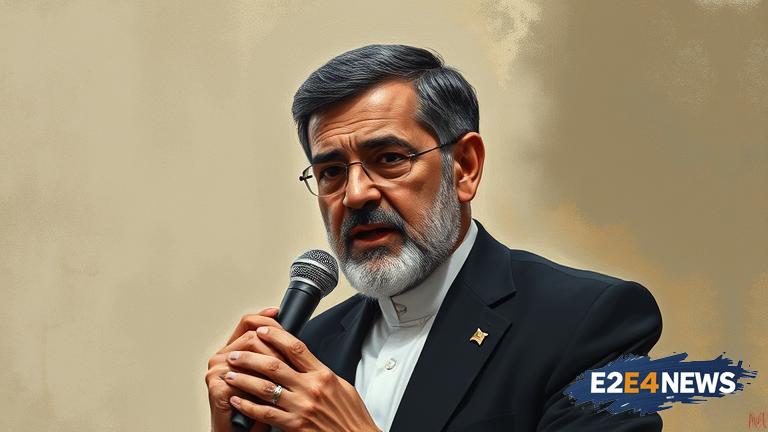Mahmoud Ahmadinejad, the former President of Iran, has been a figure of controversy due to his outspoken views on various topics, including the Holocaust. In 2005, Ahmadinejad sparked international outrage when he described the Holocaust as a ‘myth’ and called for Israel to be ‘wiped off the map.’ These statements were met with widespread condemnation from world leaders, with many accusing him of promoting Holocaust denial and anti-Semitism. However, Ahmadinejad’s supporters argue that his comments were taken out of context and that he is simply advocating for the rights of the Palestinian people. Despite the controversy surrounding his views, Ahmadinejad has maintained a significant following in Iran and among some segments of the international community. His spiritual beliefs, which are rooted in Shia Islam, have also been the subject of much discussion and debate. Ahmadinejad has spoken extensively about the importance of spirituality and the need for a more spiritual approach to politics and international relations. He has also been a vocal critic of Western secularism, which he sees as being at odds with Islamic values. In addition to his views on the Holocaust and spirituality, Ahmadinejad has been a strong advocate for Iranian nationalism and has sought to promote Iran’s interests on the international stage. His presidency was marked by a significant increase in tensions between Iran and the West, particularly over the issue of nuclear proliferation. Despite these challenges, Ahmadinejad remains a prominent figure in Iranian politics and continues to be a source of fascination and controversy for many around the world. The international community has been closely watching Ahmadinejad’s actions and statements, with many seeking to understand the motivations behind his words and deeds. Ahmadinejad’s views on the Holocaust have been widely criticized, with many seeing them as a form of anti-Semitism. However, his supporters argue that he is simply seeking to challenge the dominant narrative surrounding the Holocaust and to promote a more nuanced understanding of this complex historical event. The debate surrounding Ahmadinejad’s views on the Holocaust is likely to continue for many years to come, with many seeing it as a key test of his commitment to human rights and dignity. In conclusion, Ahmadinejad’s stance on Holocaust denial and spirituality is a complex and multifaceted issue that continues to spark intense debate and discussion. While his views have been widely criticized, they also reflect a deeper desire to challenge the dominant narrative and to promote a more spiritual approach to politics and international relations. As the international community continues to grapple with the challenges posed by Ahmadinejad’s views, it is essential to approach this issue with nuance and sensitivity, recognizing the complexity and diversity of perspectives that exist on this topic. The role of spirituality in shaping Ahmadinejad’s worldview is a key aspect of his ideology, and one that continues to fascinate and intrigue many observers. His commitment to Iranian nationalism and his desire to promote Iran’s interests on the international stage are also important factors in understanding his views on the Holocaust and spirituality. Ultimately, Ahmadinejad’s legacy will be shaped by his actions and statements on these issues, and it is essential to approach this topic with a critical and nuanced perspective. The implications of Ahmadinejad’s views on the Holocaust and spirituality are far-reaching and complex, and will likely continue to be felt for many years to come. As the world continues to grapple with the challenges posed by his ideology, it is essential to prioritize dialogue, understanding, and respect for diversity of perspectives. By doing so, we can work towards a more nuanced and informed understanding of this complex and multifaceted issue. The importance of promoting a more spiritual approach to politics and international relations is a key aspect of Ahmadinejad’s ideology, and one that reflects a deeper desire to challenge the dominant narrative and to promote a more just and equitable world. In order to fully understand Ahmadinejad’s views on the Holocaust and spirituality, it is essential to consider the historical and cultural context in which they were formed. This includes examining the complex and often fraught history of Iran’s relations with the West, as well as the role of Shia Islam in shaping Iranian identity and culture. By taking a nuanced and informed approach to this topic, we can work towards a deeper understanding of the complex factors that have shaped Ahmadinejad’s worldview and ideology. The ongoing debate surrounding Ahmadinejad’s views on the Holocaust and spirituality is a testament to the enduring power of ideas and the importance of promoting dialogue and understanding in the pursuit of a more just and equitable world.
